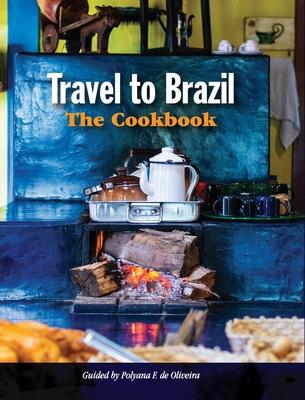It's 2020, and you own a travel agency, promoting your home country. Once travelers stop booking and borders are shut, how do you keep interest in your destination alive? Polyana de Oliveira's solution was to write a book. A cookbook. As a travel entrepreneur, home cook, and lover of all things related to Brazilian culture, she could not just sit around and wait for borders to reopen. Since many people were at home cooking, and there are many stories to tell, she decided to create something that would approximate travelers to her country, and to keep Brazil in the minds of the culturally curious, even if she couldn't sell travel again quite yet.
In "Travel to Brazil: the Cookbook," Polyana will tell you a little bit of her own story, growing up in the United States as an undocumented Brazilian immigrant, and how this brought her to build a travel company to promote her home country. She also tells the stories of people from around the country, how they work with travelers, and shares recipes for their own favorite dishes - from traditional Brazilian fare to unique creations. From the Iguau Falls in the south of Brazil, to river beaches in the Amazon, and many destinations in between, explore Brazil and cuisine throughout the country, with locals' recipes. More than a cookbook, Travel to Brazil is a series of personal stories, an exploration of the different cultures found throughout Brazil, how its history brought these foods to become tradition, and a preview of some of Brazil's most interesting travel destinations.
Recipes in the book include classics and favorites, like coxinha from a So Paulo rotisserie, moqueca from a Salvador based cooking school, and po de queijo from a restaurant in the hills of Minas Gerais - but also include creations by local restaurant and hotel owners like an Amazonian ceviche from Par, an award winning shrimp gnocchi from the top of the Morro da Providncia favela in Rio de Janeiro, and a foraged mushroom pasta from the forests of Rio Grande do Sul. Many recipes in the book have adaptations for people with dietary restrictions, and Polyana has made a conserted effort to include vegan options, alternatives for those who are lactose intolerant or have shellfish allergies, and a majority of the recipes in the book do not contain gluten. The book is meant to get its reader to start cooking Brazilian inspired fare, and through the stories of the destinations and people you would meet along the way, inspire you to travel to Brazil.
